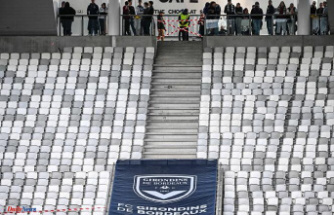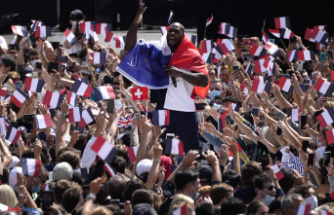According to the manufacturer, the yarn that makes up the German World Cup jersey is made from 50 percent recycled plastic waste. A report is now questioning whether the jerseys of the DFB team are really as sustainable as they are officially said to be.
According to research by "Zeit" and the media start-up "Flip", the jersey of the German national soccer team at the World Cup in Qatar is apparently not as sustainable as the manufacturer Adidas claims. The environmental protection organization "Parley for the Oceans" is therefore even questioning its cooperation with the group.
Both media had previously researched the supply chains of the material and commissioned scientists from the University of Hamburg to examine the jerseys. The result: In the first five washes, the black and white dress loses an average of 68,000 microplastic fibers.
"That's really impressively bad," quoted the "Zeit" the head of the research group for microplastics at the University of Hamburg, Elke Fischer. "These fibers end up with the wastewater from our washing machines in the sewage treatment plants, which are not able to filter it all out. It goes straight through the rivers into our seas."
Adidas uses recycled plastic waste in the production of jerseys and other sporting goods. "As part of our sustainability efforts, we are working hard to avoid microfiber abrasion," said an Adidas spokesman.
The company also cooperates with "Parley for the Oceans" and sells the jersey of the German national team with the note: "This garment was made with a yarn that consists of 50% Parley Ocean Plastic - recycled plastic waste found on remote islands Beaches and coastal regions to avoid polluting our seas."
The plastic waste used for the German jersey comes from Thailand. According to the report, "Parley for the Oceans" is not active in this country. An Adidas spokesman wrote on request: "The countries of origin of the plastic waste processed in Parley Ocean Plastic are currently the Dominican Republic, the Maldives, the Philippines and Thailand. The specific composition varies due to production."












